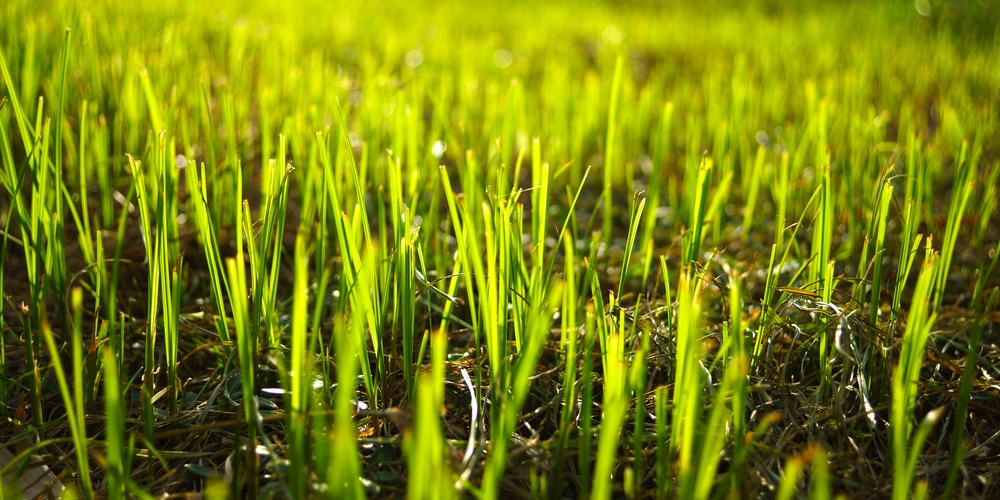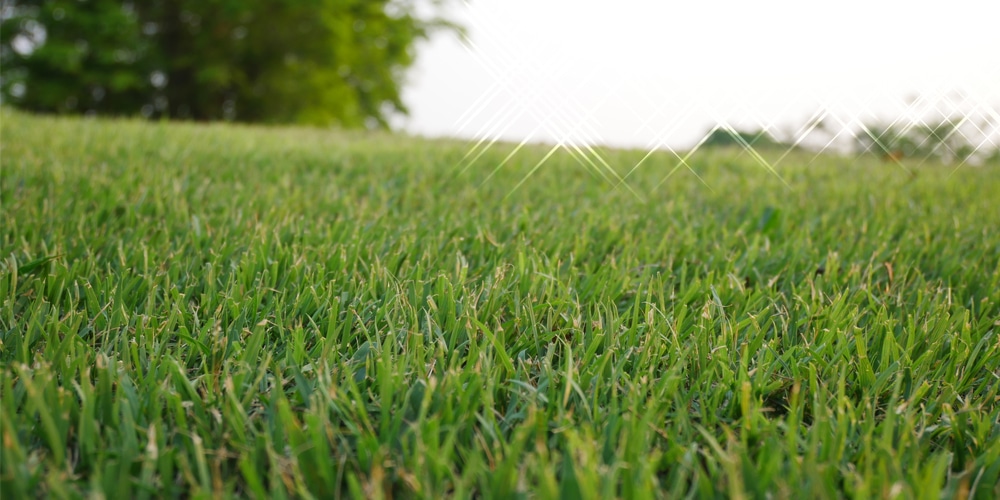If your yard is ooking patchy or has thin areas, you may be wondering when to reseed a Bermuda grass lawn. Bermuda grass is a popular grass variety, especially in the southern states.
Bermuda lawns look great and thrive in the full sun. However, the grass goes dormant in the winter and can end up looking patchy. Bermuda copes with the hot summers and is drought resistant. It also wears well and isn’t bothered by foot traffic, which is excellent if you have an active family.
The downside of growing a Bermuda lawn is that it has certain nutritional requirements and many gardeners describe this grass variety as being high maintenance. If, after the winter, your Bermuda lawn has ended up patchy, it may be time to reseed your lawn. This article will help you determine when to reseed a Bermuda grass lawn.
When to Reseed Bermuda

You may find that your Bermudagrass lawn ends up looking thin or patchy, especially in the spring and early summer. This is because Bermuda is a warm-season grass that becomes dormant throughout the winter.
In the early spring, when the temperature starts to rise, Bermuda grass breaks its dormancy and starts to grow again. This variety of grass grows via rhizomes, and if your grass looks patchy, reseeding may not be necessary.
Instead, you may be able to fertilize your Bermuda lawn to encourage new growth. An established Bermuda grass lawn doesn’t generally need to be reseeded.
If your lawn looks very thin and patch and fertilizer hasn’t helped, you may like to try reseeding your lawn. It’s best to reseed a Bermuda grass lawn in the spring. You can sprinkle some new seeds in patchy areas and provide them with enough water to grow.
How to care for Bermuda Grass
Taking care of your lawn will mean that it doesn’t need to be reseeded in the future. A healthy Bermuda lawn will also be less likely to be taken over by weeds and will cope better if there’s a drought. Healthy grass can also resist disease and pests better than a lawn that’s weak. Here are some ways you can care for your Bermuda grass.
Aeration
You should regularly aerate your lawn throughout the growing season, as this will help the lawn thrive. Often soil will become compacted, especially if you have kids and pets running around on your lawn. Aeration can help to relieve the stress on grasses and also allows nutrients, air, and water to get deeper into the soil and reach the grasses roots.
Mow your lawn
It’s a good idea to mow your Bermuda grass to a lower height of between one and 1 ½ inches. Bermuda grass should be mowed regularly throughout the growing season. Most homeowners find that they need to mow their grass once a week. It’s also a good idea to water Bermuda grass using a sprinkler after you’ve mowed it. Here are some mowers for Bermuda grass.
Fertilize your lawn
As discussed above, patchy Bermuda grass can be fertilized to help it thicken and spread. It’s also a good idea to continue fertilizing your lawn throughout the growing season. Many gardeners recommend that you fertilize Bermuda grass once a month. Always follow the instructions on the label when applying fertilizers.
Get rid of weeds
A healthy Bermuda lawn should be dense and block out weeds, making it hard for them to grow. If you notice any weeds in your yard, you can pull them out by hand or use a herbicide. You may like to use a weed and feed product to eliminate weeds and fertilize your lawn at the same time.
Conclusion
In most cases, it’s not necessary to reseed a Bermuda lawn, as this variety of grass naturally becomes dormant and gets thinner in the winter. As the weather gets hot during the spring, the grass will grow and thicken out. It will also spread to fill in patchy areas. You can give your lawn some fertilizer to help with this process.
In some cases, you may decide to reseed your lawn and can do so by sprinkling Bermuda seeds in the thin or patchy areas. Ensure you provide plenty of water so that the seeds can grow and thrive.
If your Bermuda grass is patchy after your best efforts, it may be that your yard is too shady. St. Augustine is a good alternative. St. Augustine vs. Bermuda grass.
